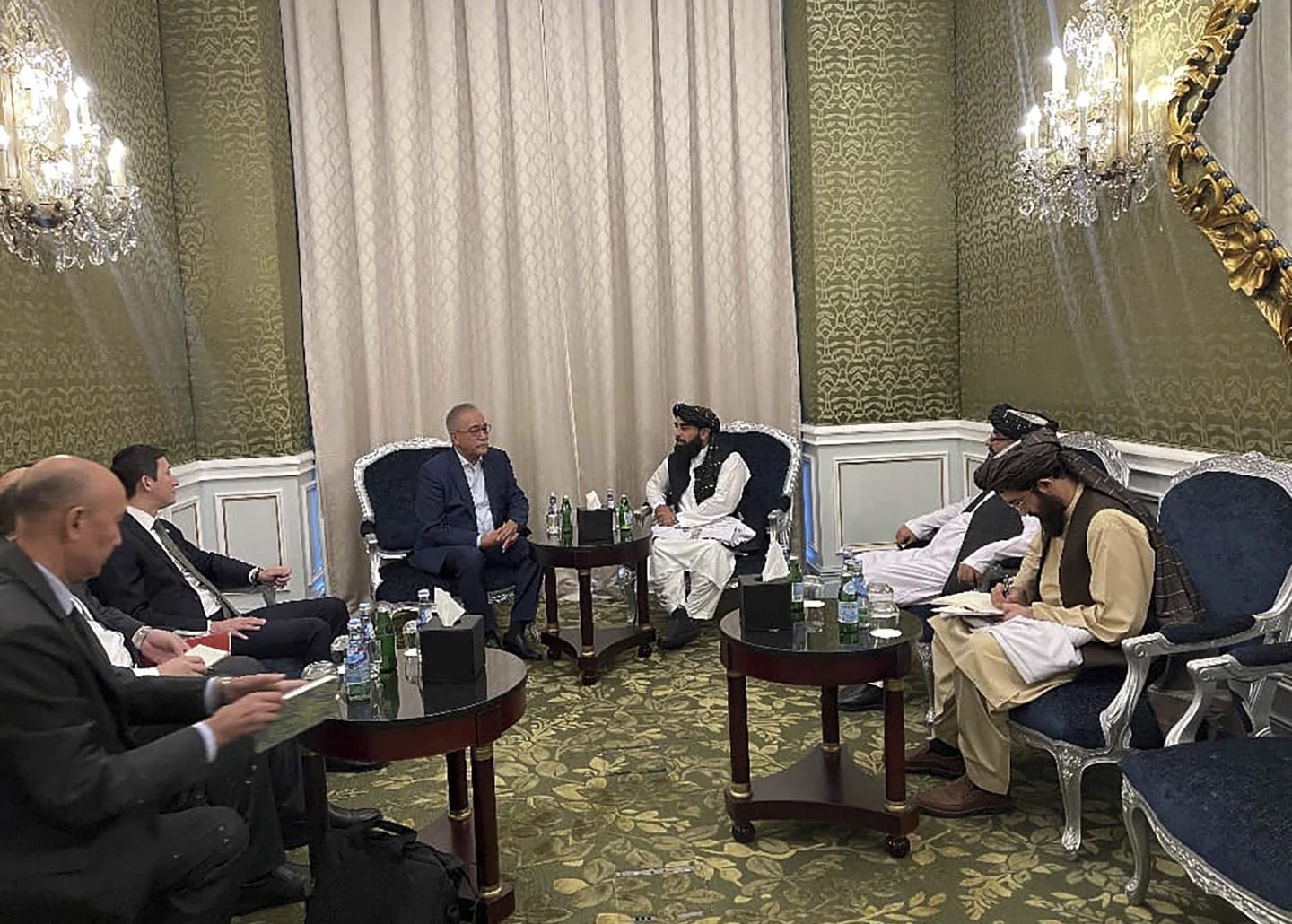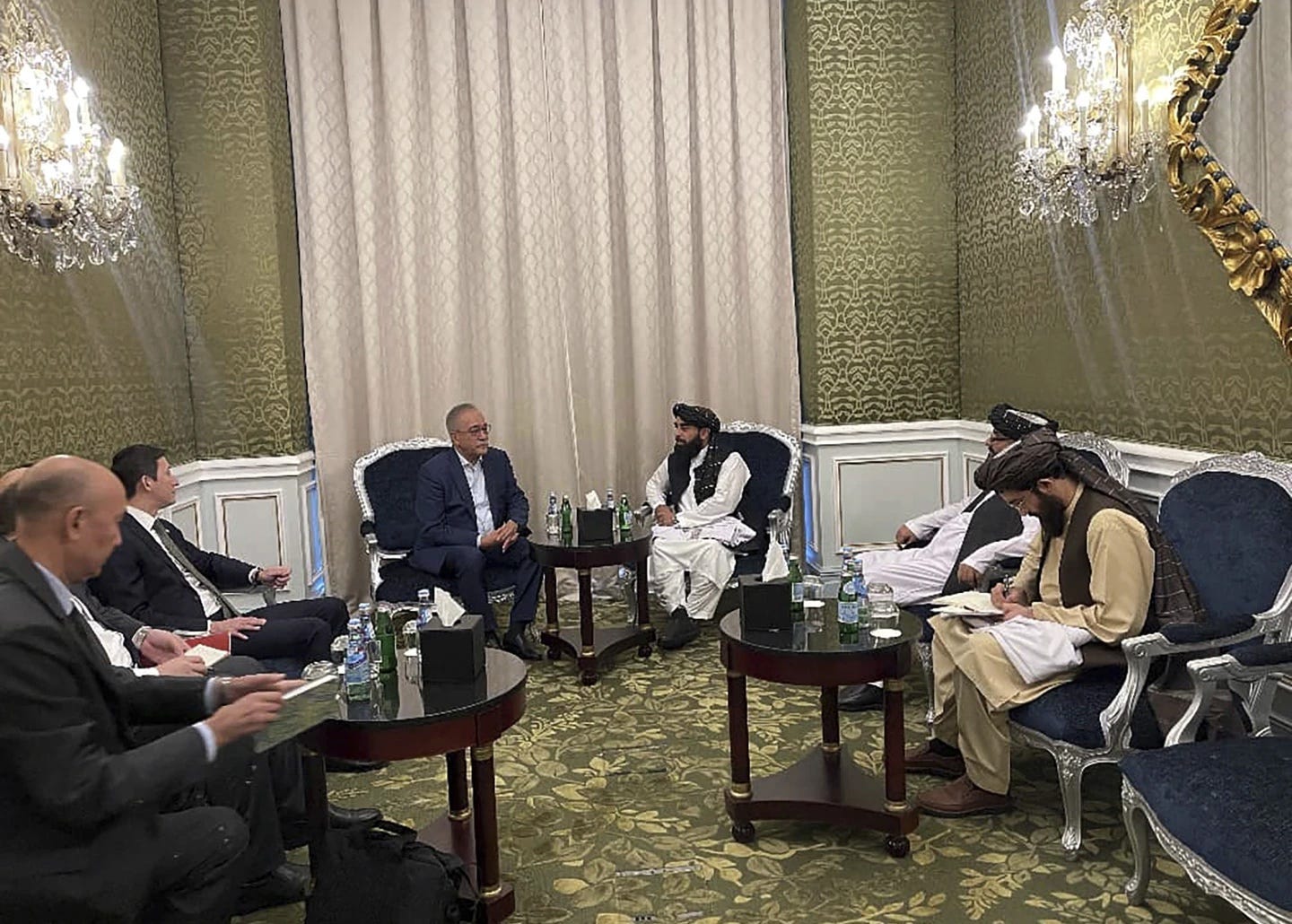Abbreviated TAD Doha Addition
Doha Conference – The third Doha meeting on Afghanistan concluded on July 1, with UN Deputy Secretary-General Rosemary DiCarlo highlighting its benefits and future opportunities for interaction. She emphasized that these meetings do not imply recognition of the Taliban and stressed the importance of resolving the ban on girls' education. DiCarlo announced the formation of working groups on human rights and women's issues. Two Afghan civil society representatives will meet with UN officials, though the Taliban delegation will not be present. Discussions also included inclusive governance and minority rights.
Tariq Ali Bakhit from the OIC advocated for continuous, constructive engagement with the Taliban to address women's education, employment, and terrorism. The meeting faced criticism and calls for a boycott due to the exclusion of women's rights, with Canada expressing disappointment over the lack of diverse Afghan representatives.
Taliban spokesperson Zabihullah Mujahid demanded the release of Afghanistan's blocked foreign reserves and the lifting of financial sanctions. He proposed livelihood alternatives for farmers to eliminate poppy cultivation and suggested forming a working group to pursue these demands. Mujahid insisted that these demands must be met by representatives from 25 countries and five international organizations to build trust. He also dismissed the need for a UN Special Representative for Afghanistan, despite its approval by the UN Security Council.
Doha Side Discussions – Zabihullah Mujahid, Taliban spokesperson, met with Indonesian Foreign Minister, Dutch representative, and Kazakh Deputy Foreign Minister at the Doha meeting. They discussed strengthening bilateral relations, with the Netherlands having a positive view of Afghanistan and Kazakhstan emphasizing economic ties. The Taliban seek constructive engagement with Western countries. Mujahid also reportedly met with the Norwegian representative on Monday’ During the Meeting, Norway expressed a positive outlook on Afghanistan and emphasized strengthening relations under Taliban control, following a previous meeting with Afghan civil society and Taliban members in May.
US and Qarari Delegations Meet – Rina Amiri, U.S. special envoy for Afghanistan’s human rights, and Lolwah Al-Khater, Qatar’s Minister of State for International Cooperation, discussed Afghan women's empowerment and economic stability. This meeting, on the sidelines of the Doha meeting, addressed bilateral relations but faced criticism for sidelining women’s and human rights issues.
NEWS
The Taliban tell the West to look past harsh edicts on Afghan women and girls and build ties
AP
The Taliban on Sunday told the West to look past the measures they have imposed on Afghan women and girls for the sake of improving foreign relations.
Their chief spokesman Zabihullah Mujahid said the Taliban uphold certain religious and cultural values and public aspirations that “must be acknowledged” to facilitate progressive bilateral relations rather than encountering disputes and stagnation.
Mujahid made his demand on the opening day of a United Nations-led meeting in Qatar on increasing engagement with Afghanistan and to have a more coordinated response to the country’s issues.
USG DiCarlo highlights Afghan women's concerns at Doha III meeting
I want to first express our deep appreciation to the Government of Qatar for hosting this third meeting of Special Envoys on Afghanistan.
This is the third Doha meeting, but it is also a first. Indeed, this is the first time such a broad cross section of the international community and the de facto authorities have had the opportunity to hold such detailed discussions.
These discussions were frank and, I believe, useful.
They were based on priority areas listed in the independent assessment the UN Security Council recognized last November.
That assessment called for a more structured process, with clear conditions and expectations for all sides.
So, we are pursuing a principled, step-for-step approach with a clear understanding of the outcomes and commitments from all sides.
We are still at the beginning of this process.
UN talks in Doha end; recognition remains distant dream for Taliban
Sarah Zaman
The third round of U.N.-led talks to explore engagement with Afghanistan ended Monday without the Taliban making any reform pledges or winning concessions from the international community.
A few international organizations and special envoys for Afghanistan from nearly two dozen countries met with Taliban officials in Doha, Qatar, over two days. Rosemary DiCarlo, U.N. undersecretary-general for political and peacebuilding affairs, who presided over the event, told reporters the talks were "constructive" and "useful."
How Afghan women perceive the third Doha meeting: A Zan Times survey
Zan TImes
The third Doha meeting has begun. This United Nations-hosted conference is being held on June 30 and July 1 in Doha, the capital of Qatar. For two days, special representatives from more than 30 countries of the world as well as from international organizations will discuss the political situation of Afghanistan. The purpose of the meeting is said to be to increase international interaction with Afghanistan in a coherent and structured manner.
Rosemary DiCarlo, UN under-secretary-general for political and peace affairs, is in charge. In the cities and villages of Afghanistan, women either know nothing about the nature and importance of the meeting or feel that holding such a gathering will result in positive changes in the Taliban’s attitude. As a result, the women of Afghanistan demand that the international community apply practical pressure on the Taliban so that they will have no choice but to grant basic rights to women.
INTERNATIONAL NEWS RELATING TO AFGHANISTAN
Several US military bases in Europe on heightened alert amid possible terrorist threat
Natasha Bertrand and Oren Liebermann
Several US military bases across Europe were put on a heightened state of alert over the weekend, with the level of force protection raised to its second-highest state amid concerns that a terrorist attack could target US military personnel or facilities, according to two US officials.
The bases, including the US Army garrison in Stuttgart, Germany where US European Command is headquartered, raised their alert level to Force Protection Condition “Charlie” on Sunday, the officials said. The garrison announced that a number of services would be closed or curtailed, and youth centers had cancelled off-post field trips. Other facilities in Germany such as Ramstein Air Base urged service members to “remain vigilant” on social media.






